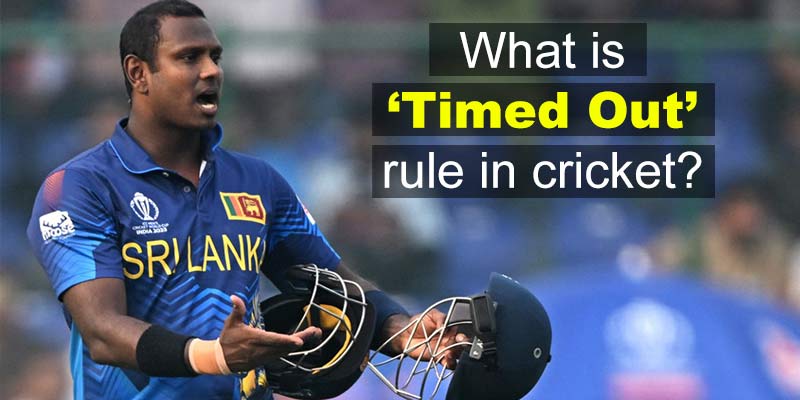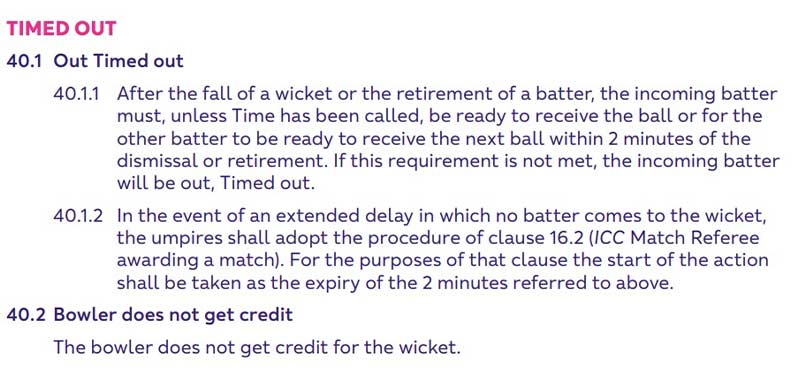- World
- Nov 07
Explainer - ‘Timed Out’ rule in cricket
• Sri Lanka all-rounder Angelo Mathews became the first international cricketer to be ‘timed out’ after not being ready to face the ball within two minutes of the fall of a wicket against Bangladesh in a World Cup match in New Delhi on November 6.
• The incident happened in the 25th over when the 36-year-old walked out to bat after the dismissal of Sadeera Samarawickrama, but found that the helmet strap was broken and immediately signalled for a replacement instead of facing the bowler Shakib Al Hasan.
• This prompted Bangladesh to appeal for a ‘timed out’.
• Mathews’ wicket was not credited to any bowler as per the rule.
• According to article 40.1.1 of the ICC playing conditions for the 2023 World Cup, “After the fall of a wicket or the retirement of a batter, the incoming batter must, unless Time has been called, be ready to receive the ball, or for the other batter to be ready to receive the next ball within two minutes of the dismissal or retirement. If this requirement is not met, the incoming batter will be out, Timed out.”
• Article 40.1.2 says: “In the event of an extended delay in which no batter comes to the wicket, the umpires shall adopt the procedure of Law 16.3 (ICC Match referee awarding a match). For the purposes of that clause the start of the action shall be taken as the expiry of the two minutes referred to above.”
• The dismissal was the first instance in international cricket across all formats, including women's cricket.
• However, there have been six instances of batters being timed out in first-class cricket.
Custodians of the Laws of Cricket
• Marylebone Cricket Club was founded in 1787, taking as its home a cricket ground set up by the ambitious entrepreneur Thomas Lord staged his first match – between Middlesex and Essex – on a ground on Dorset Fields in Marylebone.
• The following year, MCC laid down a Code of Laws, requiring the wickets to be pitched 22 yards apart and detailing how players could be given out. Its Laws were adopted throughout the game – and the Club today remains the custodian and arbiter of Laws relating to cricket around the world.
• MCC are the custodians of the Laws of Cricket and are responsible for the debating, decision making and drafting of the Laws.
• Although the International Cricket Council is the global governing body for cricket, it still relies on MCC to write and interpret the laws of cricket, which are applicable from the village green to the Test arena.
• MCC’s Laws sub-committee are responsible for the debating, decision making and drafting of the Laws, which are, in turn, passed by MCC’s Main Committee, retaining a robust and measured decision-making process.
• Certain levels of cricket are subject to playing regulations, which may create subtle differences to the Laws themselves. This is most high profile at international level, where the ICC applies playing conditions which can cause some confusion at lower levels of the game.
Manorama Yearbook app is now available on Google Play Store and iOS App Store


